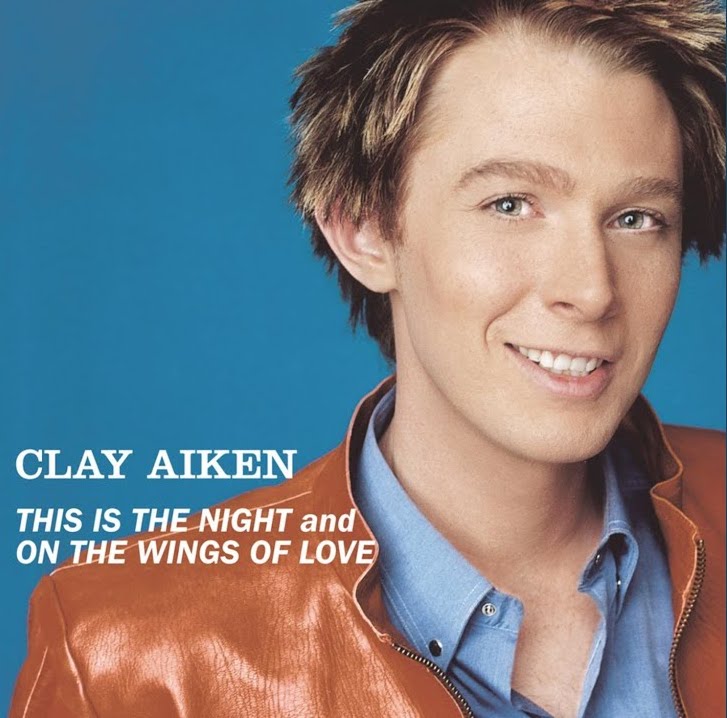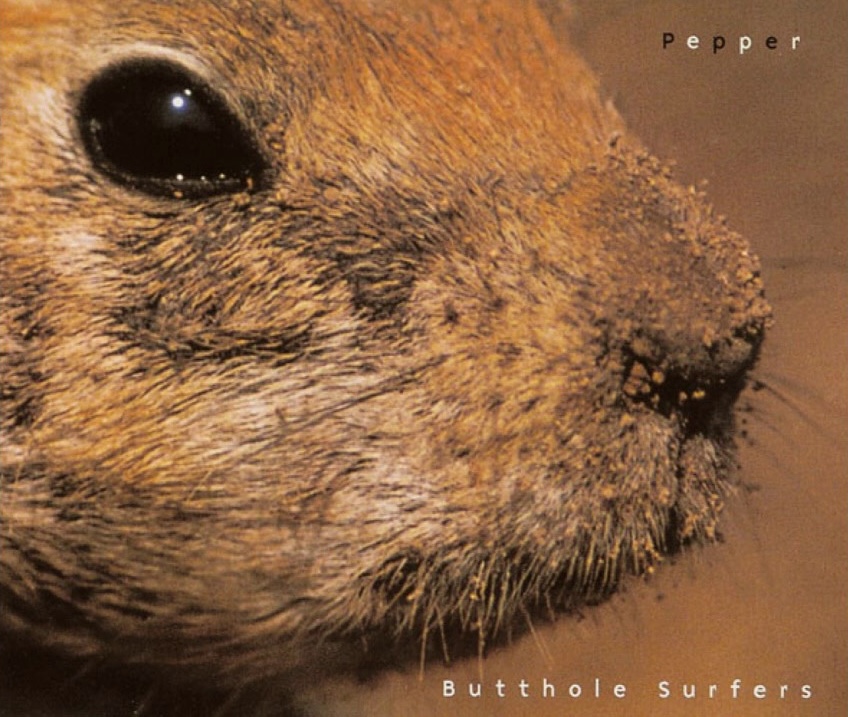June 28, 2003
- STAYED AT #1:2 Weeks
In The Number Ones, I'm reviewing every single #1 single in the history of the Billboard Hot 100, starting with the chart's beginning, in 1958, and working my way up into the present.
Kelly Clarkson beat the odds. It wasn't just that Clarkson won the first season of American Idol, defeating the tens of thousands of other pop-star hopefuls who auditioned for the show. It was everything that came after. When Clarkson won the show, her coronation song "A Moment Like This" became a #1 hit by design. That wasn't really a surprise. But it was a surprise that Kelly Clarkson continued to crank out hits, that she carved out a long-running career as a no-shit A-list pop star. That accomplishment was arguably even more unlikely than winning her season in the first place.
Clay Aiken did not beat the odds. For one thing, Aiken did not win his season of American Idol. For most of the show's second season, the slight adult-contempo balladeer was reportedly ahead in the voting tallies. In the final week of the season, though, Aiken couldn't close the deal. The Alabama-raised soul singer Ruben Studdard squeaked past Aiken in the finale and took the American Idol victory by a narrow margin. Aiken did, however, win the chart battle; "This Is The Night," the track that would've been Aiken's coronation song, made it to #1 over Studdard's actual coronation song "Flying Without Wings." But Clay Aiken didn't really make it as a pop star.
For a few years, Clay Aiken sold a lot of records. A couple of follow-up singles did pretty well on the Hot 100. Aiken toured a fair amount, and he put in a lot of appearances on a lot of TV shows. But that TV fame eventually led to more and more stints on reality shows and then to a whole other career in the public eye. (In Aiken's case, that career would take him into politics, though he has yet to win anything there.) The Clay Aiken trajectory, way more than the Kelly Clarkson saga, would become the archetype for singers who came from the vastly popular competition shows that still make up a large chunk of the shrinking network-TV landscape. But by virtue of timing, Clay Aiken did manage to score a #1 hit, something that only a few other singing-show contestants can claim. Aiken's sole chart-topper might as well not exist anymore, but he's in the record books.
The second season of American Idol started in January 2003, only a few months after the first season ended. By then, Idol was already one of the most popular shows on TV. Idol regularly drew upwards of 20 million viewers, a number that's frankly unthinkable today. In its conquest of the American monoculture that still existed, Idol showed itself to be just as heartless as any other institution in this country. Frenchie Davis, widely considered one of the second season's most talented singers, was disqualified after old topless photos surfaced. Another contestant, Corey Clark, was also booted from the show, ostensibly for failing to tell the Idol producers about a past arrest. Clark later claimed that he'd really been kicked off for having an affair with Idol judge Paula Abdul, someone who's been in this column a bunch of times. (Abdul and the show's producers denied it.)
Like so many American Idol contestants, Clay Aiken had a readymade backstory about how he didn't even intend to audition for the show in the first place. Clay Aiken was born Clay Grissom in Raleigh, North Carolina; he legally changed his last name at 19 because of his estrangement from his abusive birth father. (Donna Summer's version of "MacArthur Park" was the #1 song in America on the day of Aiken's birth.) Aiken was raised Southern Baptist, and he started singing in his church's youth choir. Later on, he joined the Raleigh Boychoir, and he sometimes sang the national anthem before local sporting events. When Aiken was a teenager, his mother bought him studio time as a present, and he recorded a few demo CDs of Christian pop songs. But Aiken wasn't trying to be a singer; he had a different career in mind.
After working at YMCA summer camps as a teenager, Clay Aiken found what he thought would be his life's path. Aiken studied special education at UNC Charlotte, and he worked as a substitute teacher for kids with autism. Aiken also got a job as an assistant for a kid with autism, and that kid's family pushed Aiken to audition for American Idol. Aiken had actually just sent in an audition tape for another reality show, The Amazing Race, but the kid's mother was adamant that Aiken should be on Idol instead. In Fred Bronson's Billboard Book Of Number 1 Hits, Aiken says, "She kept bugging me. I said, 'Fine, I'll do it if you stop nagging me.'" (Incidentally, the last edition of Bronson's book ends with "This Is The Night," so this is the last time I'll get to use that crucial resource when I'm writing these columns. If the column suddenly gets a whole lot shittier, that's why.)
The local Charlotte Fox affiliate held its own sponsored American Idol contest, and Aiken didn't win that one. But the kid's mother, the one who'd pushed Aiken to audition in the first place, said that Aiken should try again, so Aiken went down to Atlanta for an open audition soon afterwards. In Atlanta, Aiken sang Heatwave's 1977 ballad "Always And Forever" for Simon Cowell and Randy Jackson. (Heatwave's highest-charting single, 1977's "Boogie Nights," peaked at #2. It's an 8.)
Clay Aiken looked like a total herb at his audition. He was pale and gawky and giggly, and Simon Cowell seemed pretty skeptical of the idea that he had any kind of future on the show. After hearing Aiken sing, Cowell said, "You don't look like a pop star, but you've got a great voice. So now what?" Aiken made it through to the next round of the competition, and he quickly let the people at Fox make him over into something that better resembled their idea of a pop star. He got contact lenses. His hair became progressively spikier. He stopped wearing a pooka-shell necklace. It almost wasn't enough. Aiken was cut from the show in the early rounds, but he was invited back for something called Wild Card week, where he sang Elton John's "Don't Let The Sun Go Down On Me." The judges all commented on how Aiken had worked on increasing his general appeal, and the show's viewers voted him into the top 12.
In his run on American Idol, Clay Aiken sang a whole lot of ballads: "Open Arms," "Somewhere Out There," "At This Moment." This stuff couldn't have possibly been further removed from what was happening in actual American pop music at the time. There was a deep disconnect there. On the pop charts, 50 Cent was running things. On Idol, Clay Aiken, basically the diametric opposite of 50 Cent in every conceivable way, could emerge as a breakout star. That divide just goes to show how audiences for pop music and audiences for network singing shows are not the same thing. Even if Idol had wanted to discover a 50 Cent type, nobody involved in the show would've had any idea how to do it. They knew how to sell a Clay Aiken, though.
When Clive Davis got involved with Idol, part of his rationale was that he wanted to return middle-of-the-road ballads to the American pop mainstream. He didn't really succeed. Idol could give an artist like Clay Aiken a hit or two, but it couldn't change the prevailing direction of things. Instead, Idol became a strange little island of sleepy pageant-singer balladry that occasionally bubbled its way onto the charts. Clay Aiken might've been the ideal avatar for that whole phenomenon. For a minute there, Clay Aiken did manage to become some version of a pop star. Even at his peak, though, Aiken seemed completely shut off from absolutely everything else happening within pop music.
The show's season wasn't even over when Aiken's voice first appeared on a pop hit. Partway through the season, the contestants released a version of "God Bless The USA," the cornpone nationalist signifier that Lee Greenwood had first released in 1984. Greenwood's original had peaked at #16 on the Hot 100, and it's his highest-charting single by far. The ghastly American Idol singalong version somehow made it all the way up to #4. (It's a 1.)
As season two of Idol rumbled toward its conclusion, the remaining four singers were all assigned their potential coronation songs. In the first season, all top four contestants recorded versions of "A Moment Like This." For the second season, producers switched things up: They had two songs to divide among the four contestants. Ruben Studdard and Kimberly Locke both got "Flying Without Wings." "Flying Without Wings" had been a UK chart-topper for the Irish boy band Westlife, a Simon Cowell project, in 1999. (Westlife's only Hot 100 hit, 2000's "Swear It Again," peaked at #20.) Ruben Studdard recorded a gospel-inflected R&B version of "Flying Without Wings," and his take, released on the same day as Clay Aiken's "This Is The Night," peaked at #2. (It's a 4.) Studdard ended up as the only winner of the first five American Idol winners who didn't land a #1 hit of his own. Ruben Studdard managed one more top-10 hit before falling into a solid career as a very niche entertainer.
"This Is The Night," on the other hand, was written specifically for American Idol. During the show's first season, Desmond Child, a guy whose work has appeared in this column a few times, ran a songwriting camp. Child didn't have a hand in writing "This Is The Night," but the song came out of that camp. The melody for "This Is The Night" came from the Montreal-born rocker Aldo Nova, who had a bit of a run in the early '80s before becoming one of Céline Dion's go-to collaborators. (Nova's highest-charting single, 1982's "Fantasy," peaked at #23, and Nova also played guitar on his buddy Jon Bon Jovi's 1990 chart-topper "Blaze Of Glory.")
One of Aldo Nova's "This Is The Night" co-writers was Chris Braide, a British songwriter who'd had a brief and unsuccessful early-'90s solo-artist stint and who'd gone on to write for S Club 7 and Will Young, the first winner of the British show Pop Idol. Later on, Braide would write for Shakira and Sia, two artists who will eventually appear in this column. Gary Burr, the other co-writer, came from country music. His biggest pre-Idol success was 1982's "Love's Been A Little Bit Hard On Me," a #7 Hot 100 hit for Juice Newton. (It's a 5.)
It's pretty clear that Aldo Nova, Chris Braide, and Gary Burr were going for something just like "A Moment Like This" when they wrote "This Is The Night." It's a song that could only make sense in a reality-show context. The lyrics are all vague, swooping uplift, and they sure seem to describe what it's like to win a reality show: "Lift me up in your eyes! If you told me that this is what heaven is, well, you'd be right!" The song is structurally sound, but it's also a big, blank nothing, almost by design. When Clay Aiken sang the song on the final night of American Idol competition, both Simon Cowell and Randy Jackson, by way of praising Aiken's performance, went out of their way to say that they didn't like the song. Simon: "It was like American Idol: The Musical." Randy: "I hated that song, and I hope they don't make that your first single." They made it his first single.
There's exactly one moment on "This Is The Night" that I kind of like. When the chorus first kicks in, as Clay Aiken sings the "lift me up" bit, a power chord rings out behind him. That's it. Aiken recorded "This Is the Night" with producer Steve Mac, who'd come from the Pop Idol system and who'd co-produced "A Moment Like This." The arrangement takes a generic song and makes it even more generic. Aiken's vocal is perfectly smooth and pleasant, but there's not exactly a lot of personality in it. I didn't watch more than a couple of minutes of Aiken's Idol season, so I never really learned what anyone saw in the kid. "This Is The Night" did not answer that question for me.
Clay Aiken's fans apparently called themselves Claymates? I hate that. That's the worst fan-army name I've ever heard. Clay Aiken did not win American Idol. In announcing Ruben Studdard's victory, Ryan Seacrest exaggerated how narrow the margin had been, which led to a whole goofy little controversy over whether Studdard had really won or whether the phone lines had just been overwhelmed. (The whole "loser's supporters refuse to accept result" storyline would continue to reverberate through American life in the years ahead.) The incensed Claymates ran out to buy "This Is The Night" in vast quantities. The single, packaged with Aiken's version of Simon And Garfunkel's "Bridge Over Troubled Water," sold nearly 400,000 copies in its first week -- the most sales of any single in one week since Elton John's "Candle In The Wind 1997." After a few weeks, "This Is The Night" was platinum. The song didn't really need radio play to conquer the Hot 100.
A few months after the American Idol season finale, Clay Aiken released his debut album Measure Of A Man. The lead single was "Invisible," a deeply shitty uptempo joint that had been co-written by Desmond Child; the Irish boy band D-Side recorded it just before Aiken. D-Side's version was a big UK hit, but Aiken's take peaked at #37. Aiken did better when he released his version of Neil Sedaka's 1973 song "Solitaire" as a single. (Sedaka's original "Solitaire" didn't chart, but the Carpenters took it to #17 in 1975.) Aiken had sung "Solitaire" on Idol, and the studio version of his cover became a hit, peaking at #4. (It's a 4.) Eventually, "Solitaire" replaced "This Is The Night" as the bonus track on Aiken's Measure Of A Man album. "This Is The Night" is on streaming services as a single, but it's not on the version of Measure Of A Man that you can stream. Maybe that's why "This Is The Night" has almost completely disappeared from the world. It's almost certainly the 21st-century Hot 100 chart-topper that you're least likely to encounter these days, in any context.
Clay Aiken hasn't been on the Hot 100 since "Solitaire." We won't see Clay Aiken in this column again, but we'll see plenty more American Idol fallout. Measure Of A Man went double platinum. Aiken followed it with a platinum 2005 Christmas album and with 2006's A Thousand Different Ways, an LP mostly comprised of covers that Clive Davis picked out for Aiken. Every new Clay Aiken record sold a little bit less than the one that came before. Aiken kept touring and popping up on reality shows for a few years, and that whole period of his career probably culminated in another second-place finish on a reality show that drew big ratings: Aiken was the first runner-up to winner Arsenio Hall on Celebrity Apprentice in 2012. That's also the year that Aiken released his last album. Aiken has also done some stage acting. In 2008, he had a four-month run in Spamalot on Broadway, and he's done some regional stuff since then.
In 2008, Clay Aiken came out as gay. That same year, he also became a father; he and his partner had a baby through a surrogate. A little while later, Aiken became a politician. In 2014, Aiken ran for Congress as a Democrat in a solidly Republican North Carolina district. He lost. Aiken defended his former Apprentice boss Donald Trump from accusations of racism while Trump was running for president, and then he apologized and called himself "a fucking dumbass" after Trump refused to condemn the racist yahoos who went buckshit in Charlottesville. Aiken ran for Congress again this year, and he finished third in a Democratic primary. I don't know what Clay Aiken will do next. He seems like a nice person, but frankly, I'm not that invested.
GRADE: 3/10
We rely on reader subscriptions to deliver articles like the one you're reading. Become a member and help support independent media!
BONUS BEATS: You must be joking. "This Is The Night" has left absolutely zero cultural impact. There are no prominent covers, no samples, no soundtrack placements. The song has utterly evaporated. I don't even know what to do with this section. Let's go with Eminem, a guy who's been in this column once and who will be back many more times, rhyming "Clay Aiken" with "makin'" and "fakin'" on the Game's 2005 track "We Ain't":
(The Game's highest-charting single, the 2005 50 Cent collab "Hate It Or Love It," peaked at #2. It's a 10.)
The Number Ones: Twenty Chart-Topping Hits That Reveal The History Of Pop Music is out 11/15 via Hachette Books. You can pre-order it here.






